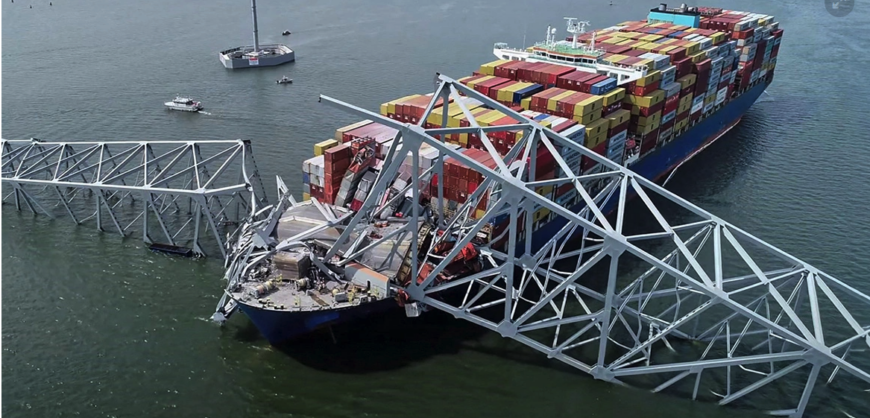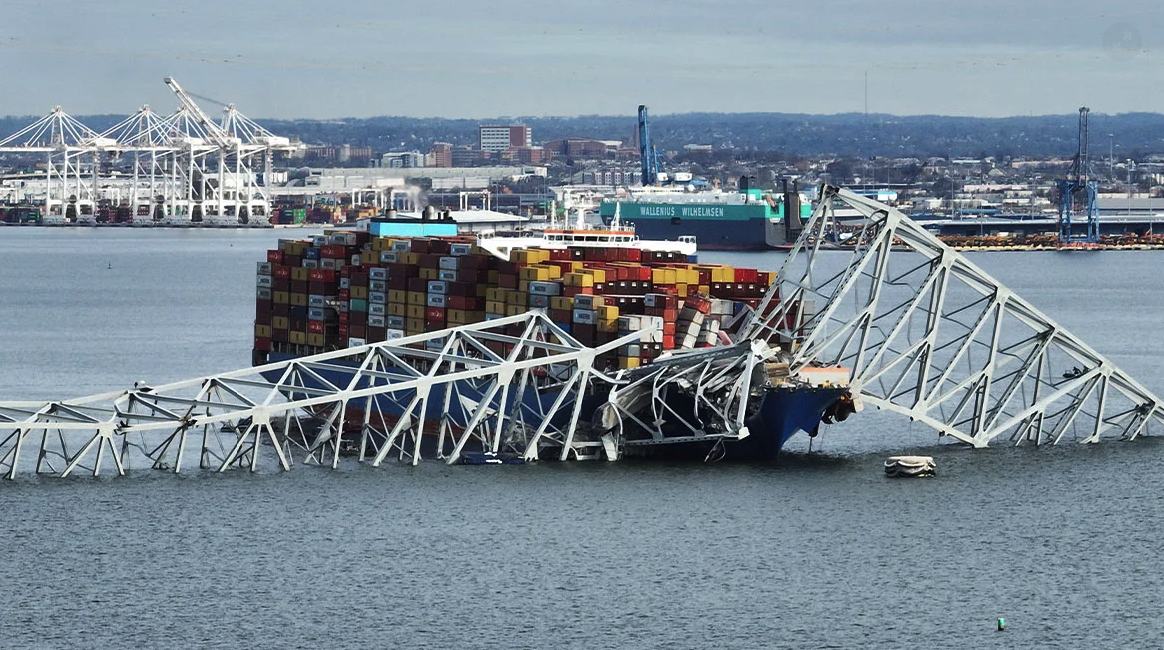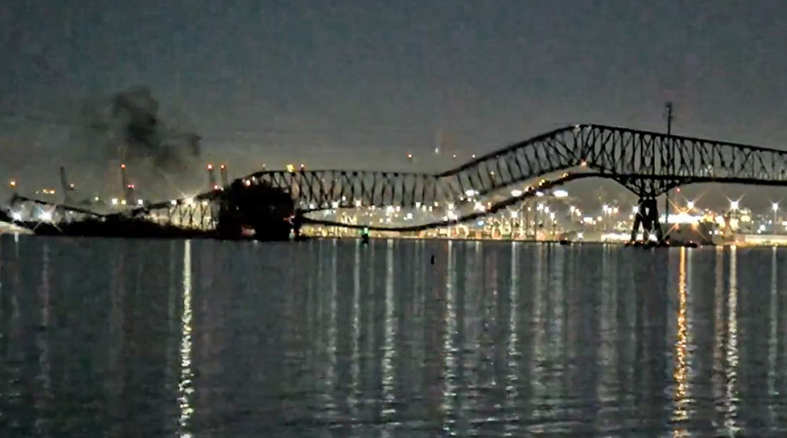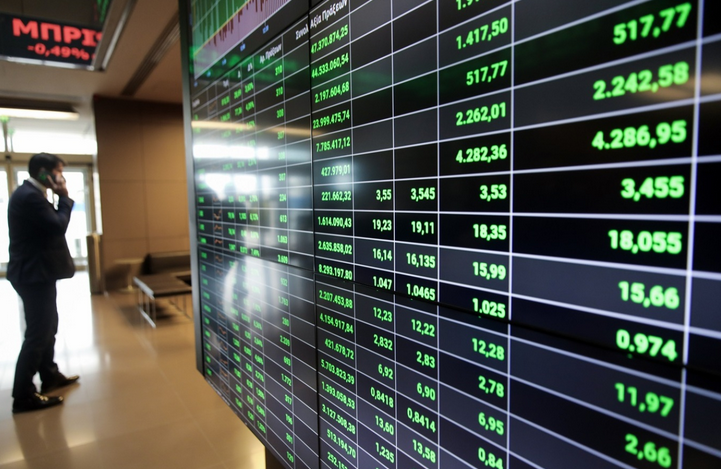Concern about the economic consequences of the collapse of the Francis Scott Key Bridge are expressed by analysts given that it was the entrance to the Port of Baltimore, which is the largest commercial port in the US and the ninth largest in the world.
What adds to the concern is the fact that US officials say that the operation of the Port of Baltimore, through which 47 million tons of international goods move, will be suspended “until further notice”.
Speaking to the BBC, the director general of the Institute of Export and International Trade, Marco Frojone, argued that the suspension “will have a significant impact on the global shipping chain”.
As he noted, “more than 750,000 cars and vehicles were shipped through Baltimore in 2023. We’re talking about major brands from the U.S. and Europe, from General Motors and Ford to Jaguar Land Rover, Nissan, Fiat, and Audi.”
According to him, the fact that “Baltimore is a major exporter of liquefied natural gas (LNG) should be put in the frame and this will cause complications for both the UK and the European Union.
Around 500,000 tonnes of LNG are handled on a monthly basis from Baltimore so the complications from what is about to happen will be significant and will escalate before the port is back to normal operations.”
Meanwhile, the Port of Baltimore employs 15,000 people and the total number of people affected by the shutdown is estimated at another 140,000.
Already the Danish freight forwarder Maersk, whose cargo was carrying the Dali that crashed into the Francis Scott Key bridge in the early hours of Tuesday morning, has announced that “we will be removing Baltimore from all our services for the foreseeable future” while companies involved in the coal trade have issued warnings of disruption to exports.
“There is no doubt that (the shutdown of the Port of Baltimore) will have a significant and prolonged impact on the supply chain,” US Transportation Secretary Pete Buttizetz said for his part.
Baltimore: The automotive industry’s “Taylor Swift”
In his own analysis, business analytics professor at Johns Hopkins University, Tinglod Dai attempting to analyze the impact of the bridge collapse in Baltimore explained that “this city is like the Taylor Swift in the US auto transportation system and even when it’s not functioning normally for a few weeks people are aware of it.
We’re talking about more than 800,000 vehicles a year, quite a few cars imported from Europe and Mexico and quite a few exported from Detroit.”
“Already automakers have made adjustments to the schedules of the ships carrying their goods although there are companies like BMW and Volkswagen that are not so much affected as their distribution centers are in the part of the harbor away from the bridge that collapsed,” the American professor added.
As he says in his analysis, “the Port of Baltimore is not just about cars.
It was the port that President Biden used as an example in November 2021 when the US was facing a major crisis in its supply chain.
Its importance and growth is significant in today’s geopolitical environment as it helps get more business done with “neighbors” like Mexico and “friends like European countries and Japan.”
Drugs for serious illnesses delivered to your home by courier
At the consumer level, the American professor argues that “we will probably see delays in product delivery and possibly price increases in some cases.
However given the resilience we have built into supply chains since the early 2020s, the disruptions will be less significant.”
According to him, the best way to reduce the impact of the bridge collapse is for the federal government to accelerate the rehabilitation of the Key Bridge and port operations.
The slower this is done, the greater the damage to the local community will be.
There needs to be a sense of urgency because we are talking about hundreds of thousands of people whose lives are affected.”







































